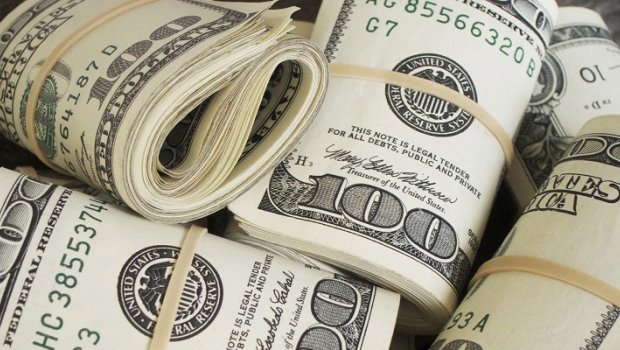Recently the news was released that Genesis (i.e. Phil Collins, Tony Banks and Mike Rutherford) have sold their music rights. According to The Wall Street Journal, music label Concord Music paid $300 million. A nice sum of pocket money for the trio. (Incidentally, the music made together with Peter Gabriel and Steve Hackett is not part of the deal.) This puts Genesis in the ranks of musical greats such as Bob Dylan and Bruce Springsteen, who have already sold their music rights in recent years. Dylan’s catalogue sold for $400 million, Springsteen’s songs earned him about $500 million. Neil Young and Paul Simon have also sold their rights, and they are not the only ones.
It’s a gas
Grab that cash with both hands and make a stash…”
Over the past year, investors worldwide have paid at least $5 billion to acquire music catalogues. In total, more than sixty large transactions were reported, according to a report from specialised news site Music Business Worldwide. It is not the last but certainly not the first newsflash in a stream of deals that have been going on for decades.
Everyone knows the story of Michael Jackson, the man who sold the most music albums of all time. He bought the rights to The Beatles’ catalogue in the 1980s. He got his hands on it for less than $50 million. The friendship with former Beatle Paul McCartney (who also wanted to get hold of it) was therefore over. Said portfolio, later supplemented by the hits of Marvin Gaye, The Rolling Stones and Bob Dylan, turned out to be a masterly purchase, with the sale to Sony being the smash hit for Jackson’s heirs: the deal yielded a sloppy $750 million. No wonder Paul didn’t want to be friends anymore.
Get back
I’m alright, Jack(o), keep your hands off of my stack…”
Why the artists sell the rights to their (future) music seems clear: they bring the (future) value of their rights forward, to a moment in time when they can enjoy it while still alive. In most (but certainly not all) cases it concerns elderly artists providing themselves with a nice old-age pension. Or use it to finance new projects that would otherwise never see the light of day (Bowie).
So who are the buyers and why is it worth so much money? Think of investment funds such as Vine Alternative Investments and British listed Hipgnosis. The latter fund in particular, with its well-known name in record sleeve circles (no link as far as is known), is working hard with various high-profile purchases. The fund is said to be worth $2.2 billion. The music rights market also arouses the interest of private equity parties, wealthy investors who finance companies outside the stock exchange. Earlier this year, one of the largest private equity investors in the world, KKR, announced a partnership with record label/music publisher BMG to make its debut in the world of investing in music rights catalogues. Upon incorporation, KKR and BMG immediately set aside at least $1 billion to invest.
So they say
Is the root of all evil today…”
It is clear: both sides are keen on a rights sale, the (investment) market is looking for these kind of opportunities, the money is good. Investors view music rights as relatively safe long-term investments. And the positive side of it is that our beloved music apparently still has so much value in the future that it justifies said investments. The music will therefore be played for several generations, on streaming services or via other channels, not a bad development. But of course driven by large sums of money.
Pink Floyd, also a band considering the sale of rights, said it as early as 1973:
It’s a crime
Share it fairly, but don’t take a slice of my pie…”
Ironically, Roger Waters’ recent politically-tinged statements have reportedly jeopardised the potential sale of the band’s rights. Is there justice after all?

